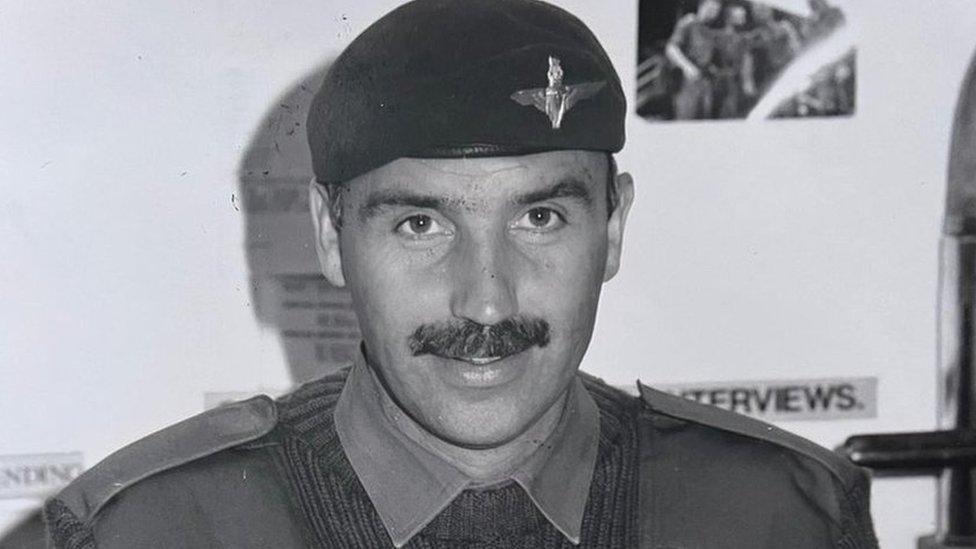Falklands 40: Former captain recalls conflict's impact
- Published
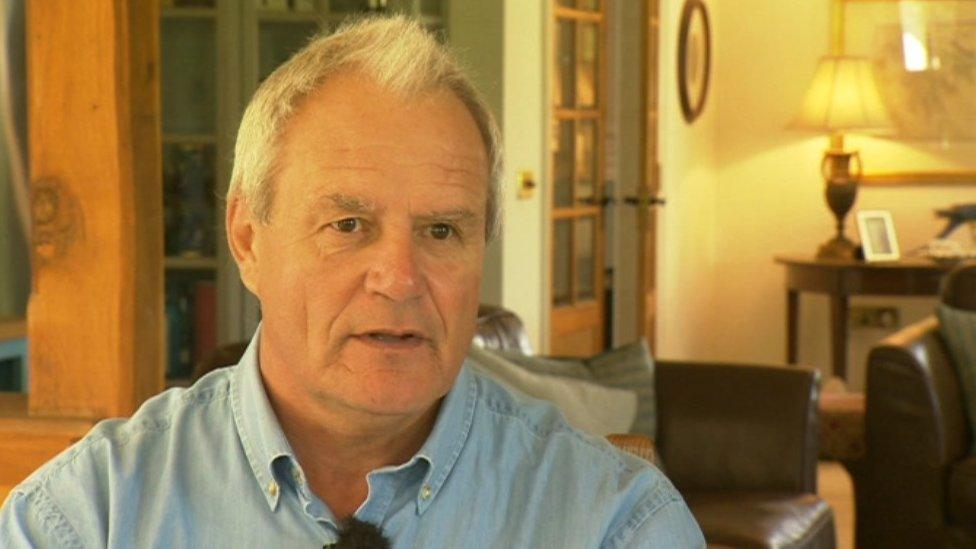
Robbie Burns has written about his experiences in Belonging to 2 Troop
Veterans of the Falklands War are still struggling to come to terms with their experiences 40 years after the conflict, a former officer has said.
Robbie Burns, from Faringdon in Oxfordshire, led a troop of combat engineers during the campaign in 1982.
He has written a book documenting his memories and those of former colleagues and their families, some talking for the first time about the conflict.
Speaking to former colleagues while writing it was "cathartic", he said.
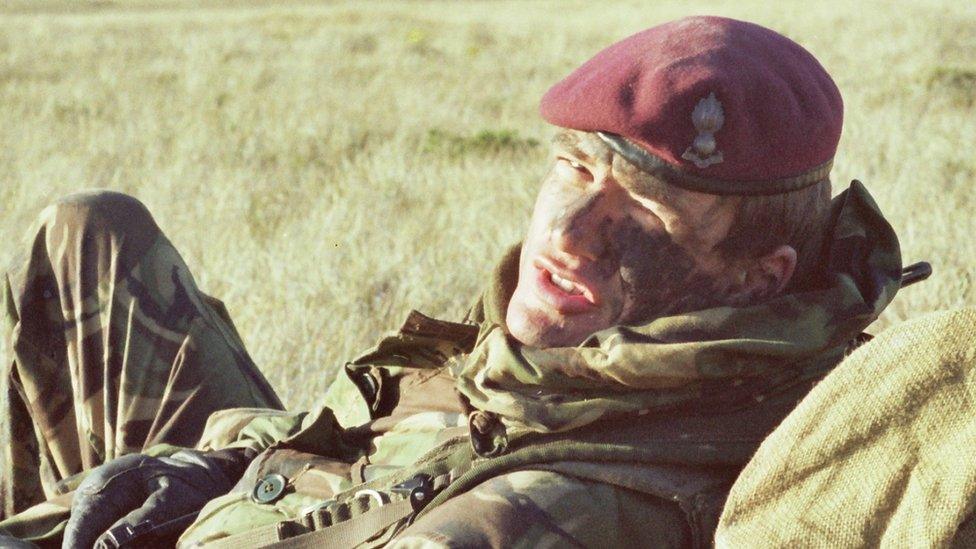
He led a troop of more than 50 combat engineers on the Falkland Islands
Mr Burns and his then-fiancé Mandy were weeks away from getting married in the spring of 1982 when news of Argentina's invasion of the British dependency in the south Atlantic came through.
Within days the "lively, robust, tough" troops under his command from 9 Parachute Squadron had joined up with the Task Force and embarked on the North Sea ferry, the MV Norland.
On the way to the South Atlantic he recalled the growing realisation that they "wouldn't be turning around" and the wedding plans were put on hold.
Mr Burns was among the first troops landing at San Carlos Bay, immediately tasked with clearing any mines and setting up an air strip for Harrier jets.
Over the following gruelling weeks, he led his troop across the island, fighting at Mount Longdon where 23 British soldiers were killed, and they were among the first forces into Stanley after the Argentine surrender.
"We thought it could be very difficult - I don't think we ever thought we were going to lose," he said.
"We were in a situation where we didn't know where the enemy were, in bad weather, across rough moorland and with mines anywhere.
"You're asking young blokes aged 19 or 20 asked to do extraordinary things - its incredible."
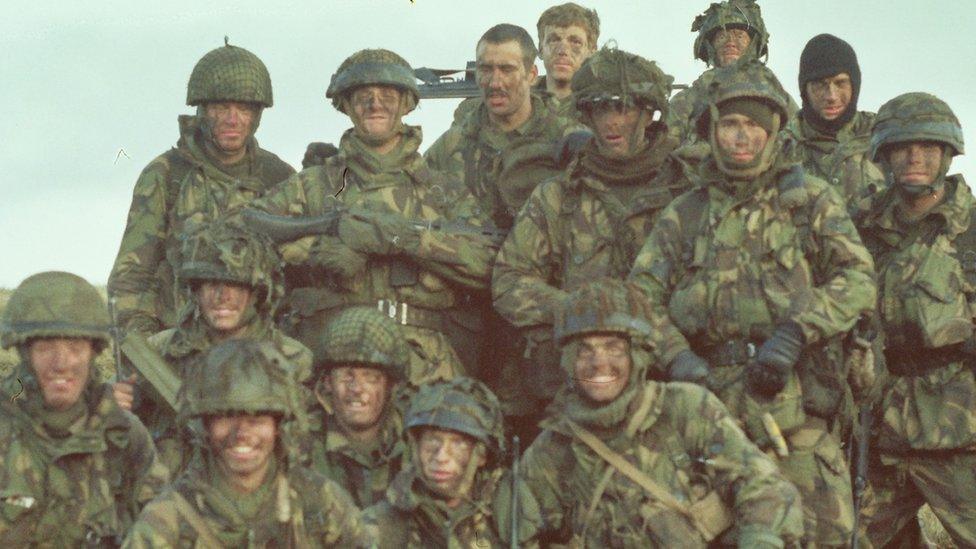
The troop of combat engineers from 9 Parachute Squadron were among the first into Stanley after the Argentine surrender
While Mr Burns lost friends at the battle for Goose Green, the only member of his troop to lose his life was Cpl Scott Wilson who he described as "an exceptional soldier and hugely liked".
"He was a key man in the troop - to lose him was an absolute tragedy," he said.
On his return to the UK, Mr Burns had a wedding and a posting to Germany to occupy him and admitted he "parked" his memoires of the conflict until he began talking to former colleagues and their family members for his book.
He said the writing the book - Belonging to 2 Troop - was "very cathartic".
"I didn't reflect and never really got emotional about it - maybe its the way blokes deal with this.
"Some of the toughest guys are still affected and need some help - I was gobsmacked and I didn't realise that would be the case.
"In a troop everyone looks after everyone else - there is an unwritten loyalty disguised as humour and banter, but the loyalty is phenomenally strong.
"Writing the book, I learnt more about the wives and how they coped - it was a really challenging time. It makes you realise the responsibility you have to your troops - you have their lives in your hands."
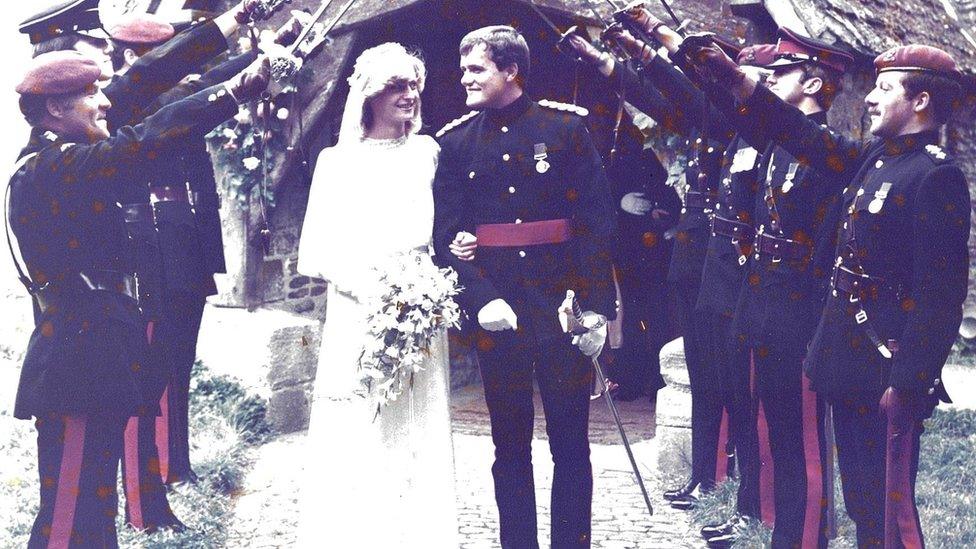
Mr and Mrs Burns were eventually married when he came back from the Falklands
As a 21-year old fiancé of a captain in the British Army who had just sailed to war, Mrs Burns said her memories of the time were of "just getting on with it".
"I remember keeping myself very busy. I was decorating the flat, I was working full time - we just kept focusing on general life and just listening to the news to find out what was happening.
"I still hate the sound of the music on the Six O'clock News of the time."
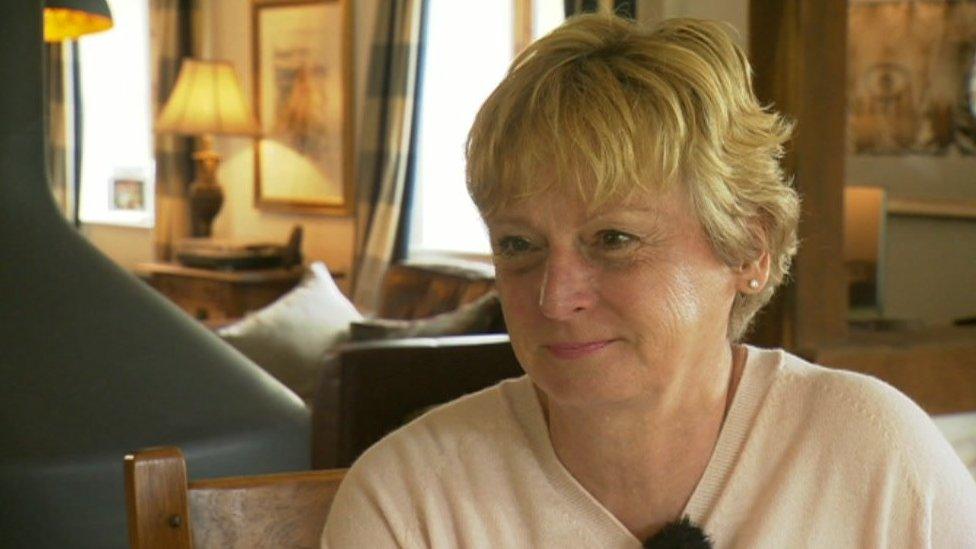
Mandy Burns said the only information on the conflict came from news bulletins
"This book is the first time Robbie has spoken about it - emotionally he found it difficult to talk about when he was back, occasionally he would give a snippet of information.
"When I proof read the first draft of the book, I just cried.
"There has been a lot about people telling their stories. The passage of time has allowed people to come to terms with what they saw," she said.

Follow BBC South on Facebook, external, Twitter, external, or Instagram, external. Send your story ideas to south.newsonline@bbc.co.uk, external.
Related topics
- Published2 April 2022
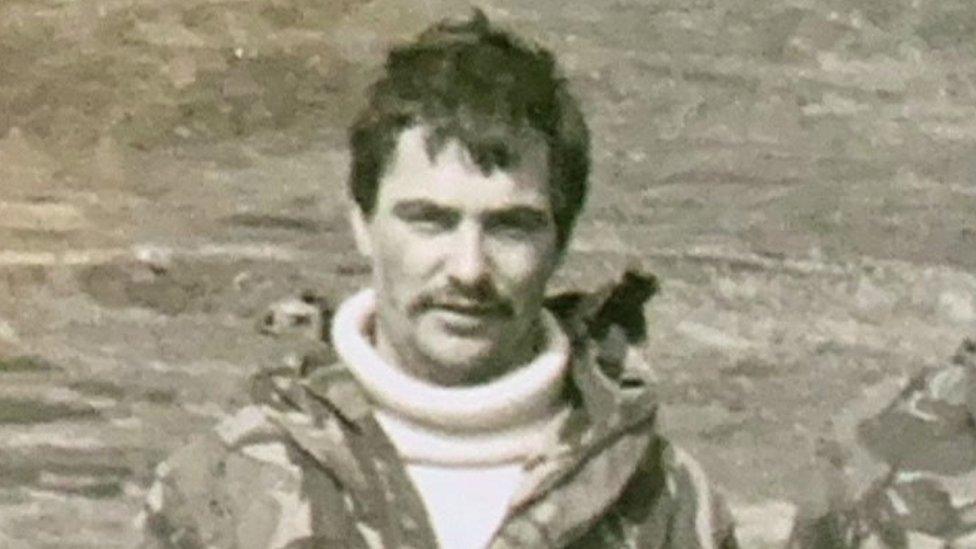
- Published2 April 2022
